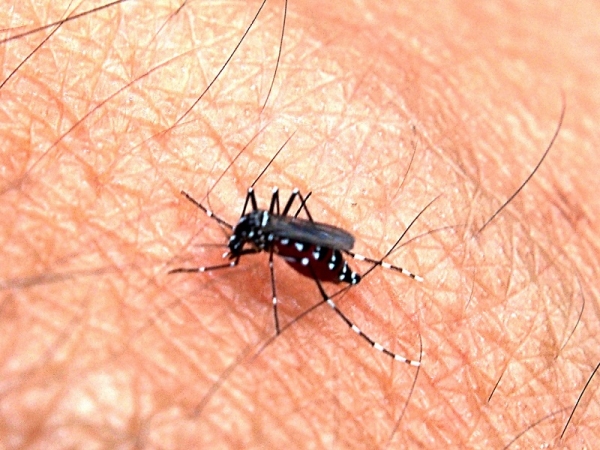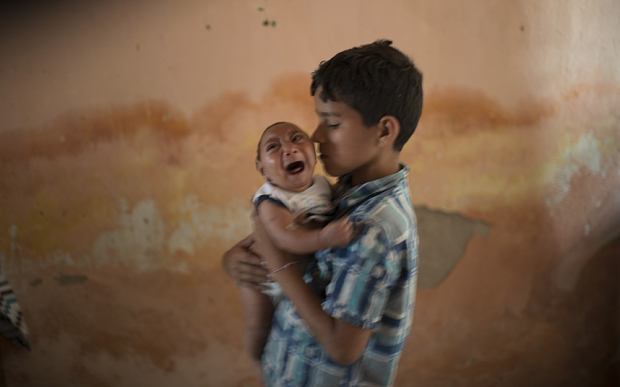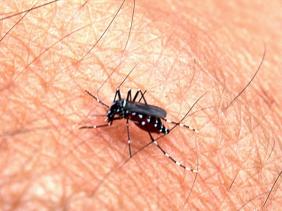The Zika virus has just been recently declared by the World Health Organization(WHO) a "public health emergency of international concern." The virus has also led to an epidemic of birth defect in Brazil and it seems to be spreading throughout the Americas.
Zika virus was first discovered in Uganda in 1947, and have been tagged a minor-league virus and was only limited to equatorial Africa and Asia until recently. The virus is spread by the Aedes mosquito, The mosquito bites the infected person and carry it to the next victims.

The recent outbreak of the Zika virus in Brazil was speculated to be from visitors who had come to watch the World cup in 2014 in Brazil, but because the virus shows no symptoms, doctors did not report it that same year until the recent outbreak. It was detected in May.
The mosquito-borne Zika virus can be transmitted sexually or through blood transfusion. So in this article, you will understand the details of Zika virus, and how you can prevent yourself, friends and family from being a victim.
The Zika virus can be transmitted by blood transfusion and the cases such as this was reported in Brazil. Blood suppliers can screen bloods because at the moment, there is no commercial test for the virus. But the good part is that the risk of getting the disease via blood transfusion is extremely low as the virus is not spread by local mosquitoes.
Also to further prevent the virus via blood transfusion, the American Red Cross has asked people that had travelled to the Zika affected area not to donate blood and also the America association of blood bank also gave similar warnings. Canada, meanwhile barred anyone who had travelled outside of Canada to Zika affected area, Europe and USA not to donate blood until after 21 days.
In 2008, scientists discover that the Zika virus can be spread via sexual contact with anyone having the Zika virus, but that was not confirmed as scientists wanted to be certain if the carrier of the virus needs to have a particular symptoms to carry the virus. The WHO are currently investigating if it can be spread sexually.
Users that are engaging in sexual contact have been advised to practise safe sex and also use condoms to prevent the virus.
Zika is reported to be in 25 countries now, and the countries are:
| AMERICAS | OCEANIA/PACIFIC ISLANDS | AFRICA |
| Brazil | American Samoa | Cape Verde |
| Colombia | Samoa | |
| Costa Rica | Tonga | |
| Curacao | ||
| Dominican Republic | ||
| Ecuador | ||
| El Salvador | ||
| French Guiana | ||
| Guadeloupe | ||
| Guatemala | ||
| Haiti | ||
| Honduras | ||
| Jamaica | ||
| Martinique | ||
| Guyana | ||
| Commonwealth of Puerto Rico, US territory | ||
| Barbados | ||
| Nicaragua | ||
| Panama | ||
| Paraguay | ||
| Mexico | ||
| Saint Martin | ||
| Suriname | ||
| U.S. Virgin Islands | ||
| Venezuela | ||
| Bolivia |
The Zika virus is in the United States, but is not listed as one of the countries of the outbreak because the virus was only contacted by Americans who had visited the countries where the virus is spreading. A case in sample is of the man with the Zika virus who had visited Venezuela and had sexual contact with a friend in the country, thereby getting the virus.
Though the Zika virus is not deadly, but people who had some health issues might have complications. Just like in Brazil, people with the Zika virus have no symptoms, but those with the symptoms of the Zika virus only shows mild symptoms like fever, rash, headaches, msucle pain, lack of energy, pink eye, joint pain and weakness.
The defects caused by the Zika virus is the microcephaly, which makes babies that are born have a small head and incomplete brain development. Also, babies with the microcephaly will also suffer from facial distortions, developmental disabilities, short stature, difficulties with balance and coordination, speech problems and seizures.

At the time of this report, microcephaly cannot be treated, and 38 babies have died from microcephaly, although some of the babies have normal development and intelligence, but their head remains small.
Countries like Colombia, Ecuador, El-Salvador and Jamaica have asked that women postponed pregnancy to allow more research results from scientists. The countries warned women of not having babies for at least 2 years. There have been backlashed on the postponement with public health officials saying that it is unrealistic to tell women not to have babies, as have of babies born are unplanned.
Also, people travelling to infected areas have been warned not to travel there for now, and if it is important to travel, they should wear long sleeves and pants to prevent mosquito bites. Also, individuals are advised to see their doctor.
The only way to reduce Zika virus is to avoid mosquito bites and avoid unnecessary outdoor activities when visiting the area with Zika virus. Communities are also warned to clear out the trash that collects standing water, and all mosquito breeding areas should be cleared.

